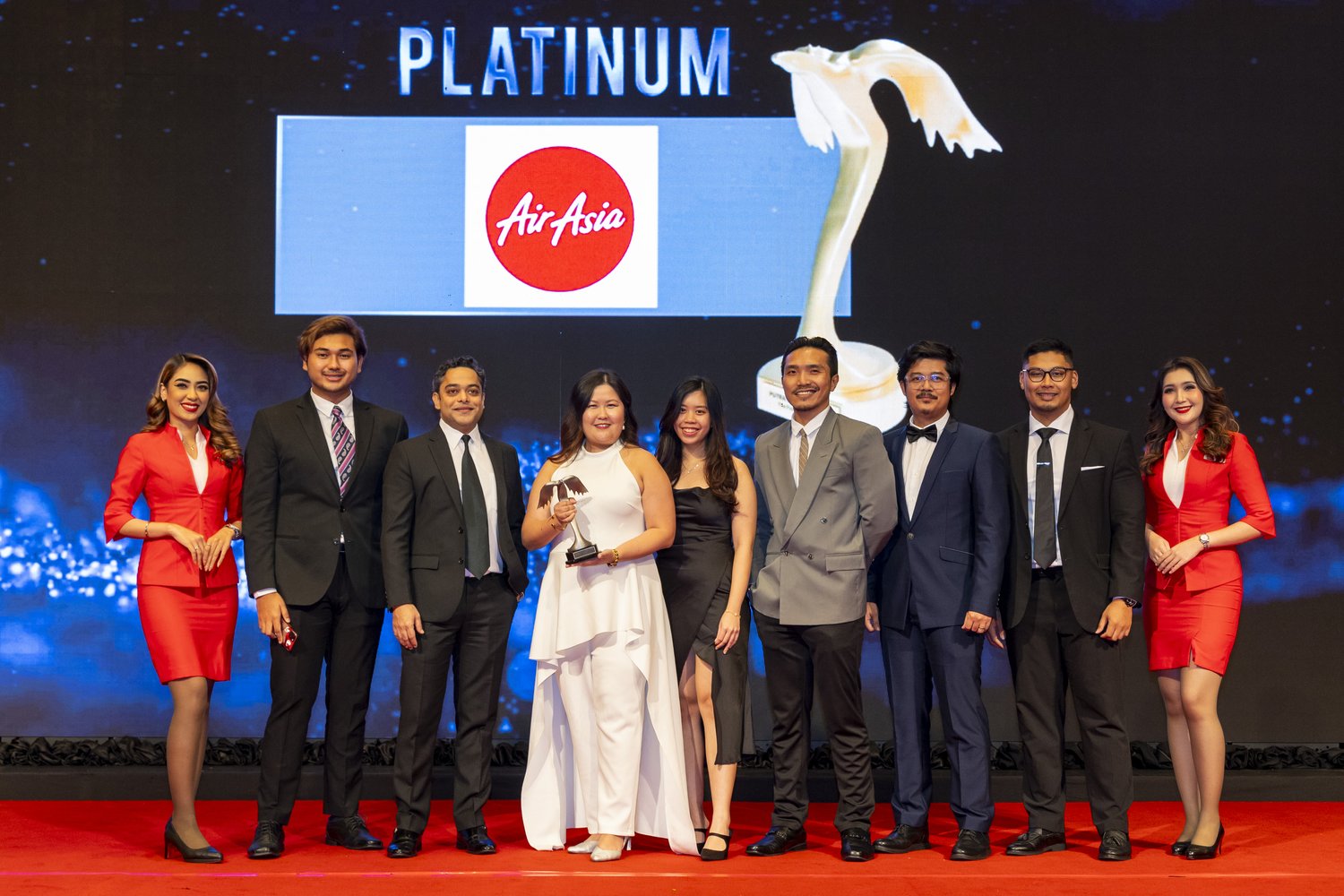Search Blog
Hit enter to search or ESC to close
Trending Now
AirAsia wins Platinum in travel category at Putra Brands Awards
- Get link
- X
- Other Apps
Touch ‘n Go Wins Super Aspiring Brand Award in the Lifestyle Category at the Shopee Super Awards 2023
- Get link
- X
- Other Apps
The travel and hospitality industry were among the hardest hit industries during the pandemic. For Malaysia, a country that boasts a thriving travel and tourism economy, this led to adverse circumstances. In the first nine months of 2020, tourism receipts plunged 80.9% to RM12.6 billion from RM66.1 billion[1].That said, the opening of the country’s borders on 1st April 2022 signals hope for the tourism industry. While the tourism and hospitality industry are on their road to recovery, both these businesses are grappling with new business realities. Fewer business travelers, newer no-contact preferences and higher overall expectations are a few of the factors that will continue to shape customer experience within the leisure, travel and tourism industry in the region.
From contactless services such as payments and digital room keys to more outdoor activities, to being assured that trips can be changed or cancelled without losing money, wooing today’s traveler will require a focus on optimizing the customer journey, eliminating friction, and personalizing the experience before, during, and after travel. That’s where conversational artificial intelligence (AI) and automation can help.
Seamless, Personalized Traveler Experience
Digital transformation accelerated across nearly every industry during the pandemic. The travel and hospitality sector was no exception. Adopting digital touchpoints and services became a top priority versus a nice-to-have offering. Consumers that moved from in-person to online aren’t likely to return to old habits, meaning that expectations are higher than ever for a great user experience while shopping for, booking, and changing travel plans online.
However, when travelers are confronted with issues such as unexpected delays or cancellations, they often want assistance from fellow humans. They want and expect a personalized, empathetic experience with customer service, including interacting with agents who understand the issue and can quickly help resolve it. Alleviating the hassles and headaches of travel so they can get to their relaxing vacation experiences faster is what will rebuild guest and traveler loyalty.
Optimizing the travel customer experience starts by understanding and optimizing every conversation before, during, and after an agent/ traveler interaction — from self-service to agent assistance to after-call follow-up and fulfilling promises made during the call. A conversational automation platform powered by conversational AI, machine learning, and automation technology can understand and optimize every conversation with travelers and agents, regardless of the channel.
Automating Conversations Using AI
Conversational AI is a set of advanced technologies that recognizes and comprehends human language and uses this understanding to optimize, automate, and analyze conversations in and across multiple channels. With a conversational automation platform powered by AI, travel and hospitality contact centers can use machines to automate conversations and augment agents to achieve the type of transformational results that drive excellent customer experiences, high Net Promoter Scores (NPSs), superb traveler/guest satisfaction ratings, and greater revenue.
Scale Conversational Self Service
Conversational AI for traveler self-service helps brands strengthen engagement with customers and improve satisfaction for routine interactions before, during, and after the trip — while reducing volume in the contact center by 15 percent or more. Before the trip, an IVA interacts with travelers to help them book their travel.
For example, a customer can call to make a reservation and interact with a voicebot IVA. Using natural language understanding (NLU) technologies eliminates friction in the reservation process to enable travelers to easily complete the booking. Seamlessly connected with the reservation and CRM systems, the IVA simplifies the transaction by automatically confirming the details required to book the travel and uses the customer’s previous travel history to make personalized upsell offers.
During the trip, the IVA supports guests with services during their travel such as booking a reservation at a restaurant. Using geo-based alerts, the IVA proactively greets the customer upon arrival and presents an offer connected with past interactions at the destination. The guest is supported throughout the trip with proactive alerts based on location and can also make requests such as scheduling a late checkout. Routine requests are quickly handled so staff can focus on more high-touch interactions to drive superior guest experiences and engagement. After the trip, the IVA proactively engages customers, for example to book their next trip or complete a survey.
Using conversational AI to optimize, analyze, and automate every conversation is the foundation for travel and hospitality brands to transform the traveler and agent experience, drive customer satisfaction, and generate greater loyalty and revenue as travel demand continues to rebound.
The right conversational automation platform that addresses the entire customer conversation from self-service to post-interaction analytics can help your company deliver a positive, personalized, and frictionless experience for your customers.
From contactless services such as payments and digital room keys to more outdoor activities, to being assured that trips can be changed or cancelled without losing money, wooing today’s traveler will require a focus on optimizing the customer journey, eliminating friction, and personalizing the experience before, during, and after travel. That’s where conversational artificial intelligence (AI) and automation can help.
Seamless, Personalized Traveler Experience
Digital transformation accelerated across nearly every industry during the pandemic. The travel and hospitality sector was no exception. Adopting digital touchpoints and services became a top priority versus a nice-to-have offering. Consumers that moved from in-person to online aren’t likely to return to old habits, meaning that expectations are higher than ever for a great user experience while shopping for, booking, and changing travel plans online.
However, when travelers are confronted with issues such as unexpected delays or cancellations, they often want assistance from fellow humans. They want and expect a personalized, empathetic experience with customer service, including interacting with agents who understand the issue and can quickly help resolve it. Alleviating the hassles and headaches of travel so they can get to their relaxing vacation experiences faster is what will rebuild guest and traveler loyalty.
Optimizing the travel customer experience starts by understanding and optimizing every conversation before, during, and after an agent/ traveler interaction — from self-service to agent assistance to after-call follow-up and fulfilling promises made during the call. A conversational automation platform powered by conversational AI, machine learning, and automation technology can understand and optimize every conversation with travelers and agents, regardless of the channel.
Automating Conversations Using AI
Conversational AI is a set of advanced technologies that recognizes and comprehends human language and uses this understanding to optimize, automate, and analyze conversations in and across multiple channels. With a conversational automation platform powered by AI, travel and hospitality contact centers can use machines to automate conversations and augment agents to achieve the type of transformational results that drive excellent customer experiences, high Net Promoter Scores (NPSs), superb traveler/guest satisfaction ratings, and greater revenue.
Scale Conversational Self Service
Conversational AI for traveler self-service helps brands strengthen engagement with customers and improve satisfaction for routine interactions before, during, and after the trip — while reducing volume in the contact center by 15 percent or more. Before the trip, an IVA interacts with travelers to help them book their travel.
For example, a customer can call to make a reservation and interact with a voicebot IVA. Using natural language understanding (NLU) technologies eliminates friction in the reservation process to enable travelers to easily complete the booking. Seamlessly connected with the reservation and CRM systems, the IVA simplifies the transaction by automatically confirming the details required to book the travel and uses the customer’s previous travel history to make personalized upsell offers.
During the trip, the IVA supports guests with services during their travel such as booking a reservation at a restaurant. Using geo-based alerts, the IVA proactively greets the customer upon arrival and presents an offer connected with past interactions at the destination. The guest is supported throughout the trip with proactive alerts based on location and can also make requests such as scheduling a late checkout. Routine requests are quickly handled so staff can focus on more high-touch interactions to drive superior guest experiences and engagement. After the trip, the IVA proactively engages customers, for example to book their next trip or complete a survey.
Using conversational AI to optimize, analyze, and automate every conversation is the foundation for travel and hospitality brands to transform the traveler and agent experience, drive customer satisfaction, and generate greater loyalty and revenue as travel demand continues to rebound.
The right conversational automation platform that addresses the entire customer conversation from self-service to post-interaction analytics can help your company deliver a positive, personalized, and frictionless experience for your customers.
By Ravi Saraogi, Co-founder and President of Asia Pacific, Uniphore
[1] https://www.smebank.com.my/images/2021/d/BizPulse60.pdf
You May Also Like
Affordable, Simple, and Accessible: DearTime Launches as Malaysia’s First Life Insurer in the BNM Sandbox
- Get link
- X
- Other Apps
Onboarding Suppliers to Accelerate Responsible Supply Chain Management
- Get link
- X
- Other Apps
LG’S New 32HR734S 4K Surgical Monitor with Mini LED Technology Delivers Outstanding Image Quality
- Get link
- X
- Other Apps
HONOR Launches New Tablets, HONOR Pad X8a Available in LTE and Kids Edition Starting at RM699
- Get link
- X
- Other Apps











